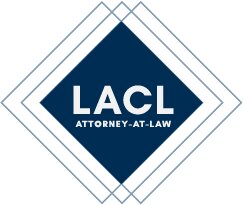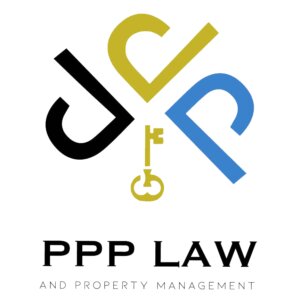Best Investment Lawyers in Huai Khwang
Share your needs with us, get contacted by law firms.
Free. Takes 2 min.
List of the best lawyers in Huai Khwang, Thailand
Thailand Investment Legal Questions answered by Lawyers
Browse our 3 legal questions about Investment in Thailand and read the lawyer answers, or ask your own questions for free.
- Breech of contract
- My business partner accused me of stealing money from the safe. Banned me from the business and decided I was a silent partner without my consent. Refused to apologise for the unproven and upsetting allegations. I want to sell my shares of the company back to them. I paid 800,000k... Read more →
-
Lawyer answer by SB Law Asia
Our firm (SB Law Asia) are experts in Thai company law and in litigation and dispute resolution. We would be happy to provide you with a free consultation.
Read full answer - Can a foreigner buy a condo unit in Thailand?
- I am French and I would like to buy a condo in Phuket or Koh Samui, am I able to do this?
-
Lawyer answer
There is no limitation in terms of nationality, and as such, any foreigner legally admitted to entering the Kingdom can buy a condominium which is generally a freehold property. It should be noted that foreigner-owned condominium units should not exceed...
Read full answer - Can a foreigner purchase land in Thailand?
- I am from the UK and I would like to purchase some land in Chiang Mai, how can I do this?
-
Lawyer answer
Due to Thai property laws, a foreigner cannot directly purchase land in Thailand; however, there are other alternatives if you wish to pursue this option. The options include; using a company, as foreigners can own land in Thailand if it...
Read full answer
Thailand Investment Legal Articles
Browse our 5 legal articles about Investment in Thailand written by expert lawyers.
- Legal Guide to Real Estate Investment Trusts (REITs) in Thailand
- Real Estate Investment Trusts (REITs) have emerged as an attractive investment vehicle for those seeking to gain exposure to the real estate market without directly owning or managing properties. In Thailand, REITs are governed by a robust legal and regulatory framework that ensures transparency, investor protection, and compliance with international... Read more →
- Conducting Business or Investing in Thailand: The Visas You’ll Need
- Thailand is a popular country among entrepreneurs, investors, and professionals looking to explore new horizons. The cost of living and doing business is relatively low, and the government provides incentives and subsidies for a variety of business activities.Whether you’re looking to invest in or start a company, or just want... Read more →
- Main Legal Measures to Protect Foreign Investment in Thailand
- According to the Board of Investment of Thailand (BOI), during the first quarter of 2021 investment applications in Thailand increased by 80% over the same period of the previous year, led by projects in the medical, electrical and electronic sectors.At Smart Legal Solutions are aware that one of the main... Read more →
About Investment Law in Huai Khwang, Thailand
Huai Khwang is a vibrant district in Bangkok, Thailand, known for its blend of residential areas, commercial hubs, and rapid urban development. Investment opportunities in Huai Khwang have increased in recent years, particularly in real estate, retail, hospitality, and technology sectors. Investment law in Thailand governs how locals and foreigners can invest in different assets or businesses, ensuring compliance with national and local regulations. While the basic framework is set by national laws, certain local practices and zoning regulations may influence your investment decisions within Huai Khwang.
Why You May Need a Lawyer
Navigating investment in Huai Khwang, especially as a foreigner or first-time investor, can be complex. You may need a lawyer for several reasons:
- Understanding and complying with foreign investment restrictions
- Drafting or reviewing contracts, such as sales or lease agreements
- Conducting due diligence on properties or businesses
- Structuring business entities and partnerships
- Navigating property ownership rules, including condominium laws
- Facilitating mergers, acquisitions, or joint ventures
- Resolving disputes with partners or local authorities
- Registering businesses or intellectual property
- Managing risks related to taxes and employment
- Assisting with obtaining necessary licenses and permits
Local Laws Overview
Investors in Huai Khwang must pay attention to several key local and national laws:
- Foreign Business Act: Limits foreign ownership in certain sectors and requires specific licenses for non-Thais.
- Land Code and Condominium Act: Foreigners generally cannot own land, but can own certain condominium units, subject to quotas and conditions.
- Board of Investment (BOI) Incentives: Eligible investors may access tax and other incentives if projects promote national interests.
- Zoning and Urban Planning Regulations: Local regulations can affect the type of businesses permitted in specific areas of Huai Khwang.
- Company Registration Laws: All businesses must be duly registered with the Department of Business Development and comply with annual filing requirements.
- Labour and Tax Laws: If hiring employees or generating income, investors must adhere to Thai labour laws, pay relevant taxes, and file reports.
Frequently Asked Questions
Can foreigners own property in Huai Khwang, Thailand?
Foreigners cannot own land directly but can own condominium units, provided that foreign ownership in a condominium project does not exceed the permitted quota. Leasehold arrangements or company structures are sometimes used, but must be carefully structured to comply with Thai law.
How can I invest in real estate in Huai Khwang?
You can invest in real estate through direct purchase of condominiums, long-term lease agreements, or by setting up a Thai majority company. Due diligence and legal review are essential to ensure compliance with laws and to secure your investment.
What sectors are open to foreign investment in Huai Khwang?
Common sectors include hospitality, technology, retail, and service industries. Some sectors have restrictions or require special licensing for foreign investors under the Foreign Business Act.
What is required to start a business as a foreigner?
You generally need to set up a Thai limited company, which may require Thai nationals as shareholders. Certain business types may also need a Foreign Business License or BOI promotion for majority foreign ownership.
Are there investment incentives available?
Yes, the Board of Investment (BOI) offers incentives such as tax holidays, import duty exemptions, and visa and work permit privileges for qualifying businesses that contribute to the Thai economy.
How do I ensure the property I purchase has a clear title?
A lawyer can help perform due diligence by checking land titles, reviewing past ownership and liens, and ensuring the property is free of encumbrances at the Land Office.
What taxes apply to investment in Huai Khwang?
Tax obligations depend on the type of investment. Real estate transactions are subject to transfer fees, stamp duties, specific business tax, and withholding tax. Businesses pay corporate income tax, VAT, and other applicable taxes.
How can I resolve disputes with business partners or suppliers?
Disputes can often be settled through negotiation or mediation, but may require formal litigation through Thai courts or arbitration. A lawyer can assist in determining the best course of action.
Do I need to register my business locally in Huai Khwang?
Yes, all businesses must be registered with the Department of Business Development. Local permits, especially for certain business types and signage, must also be obtained from district authorities.
What legal documents do I need for an investment?
Key documents include purchase or lease agreements, company registration papers, tax registration, licenses and permits, and employment contracts if hiring staff. Legal review is recommended for all documents.
Additional Resources
Here are some valuable resources and organizations for investors in Huai Khwang:
- Thailand Board of Investment (BOI) - Provides information on incentives and permitted activities
- Department of Business Development (DBD) - Handles company registration and business information
- Land Office, Bangkok - For real estate transactions and title verification
- Thai Chamber of Commerce - Guidance for new investors and networking opportunities
- Legal aid centers and law firms specializing in investment and property law
- Commercial section of the local district office - Assists with local permits and regulatory compliance
Next Steps
If you are considering or ready to invest in Huai Khwang, it is important to proceed strategically:
- Identify your investment interests and required capital
- Consult a qualified lawyer with experience in Thai investment law
- Undertake thorough due diligence on properties or business partners
- Set up a legal entity if required and register your business or investment
- Review and sign all documents with legal oversight
- Monitor your compliance with ongoing regulatory and tax requirements
Seeking professional legal advice while investing in Huai Khwang can help protect your interests and ensure that your ventures comply with all local and national laws. When in doubt, reach out to a qualified legal specialist before making any commitments.
Lawzana helps you find the best lawyers and law firms in Huai Khwang through a curated and pre-screened list of qualified legal professionals. Our platform offers rankings and detailed profiles of attorneys and law firms, allowing you to compare based on practice areas, including Investment, experience, and client feedback.
Each profile includes a description of the firm's areas of practice, client reviews, team members and partners, year of establishment, spoken languages, office locations, contact information, social media presence, and any published articles or resources. Most firms on our platform speak English and are experienced in both local and international legal matters.
Get a quote from top-rated law firms in Huai Khwang, Thailand — quickly, securely, and without unnecessary hassle.
Disclaimer:
The information provided on this page is for general informational purposes only and does not constitute legal advice. While we strive to ensure the accuracy and relevance of the content, legal information may change over time, and interpretations of the law can vary. You should always consult with a qualified legal professional for advice specific to your situation.
We disclaim all liability for actions taken or not taken based on the content of this page. If you believe any information is incorrect or outdated, please contact us, and we will review and update it where appropriate.













